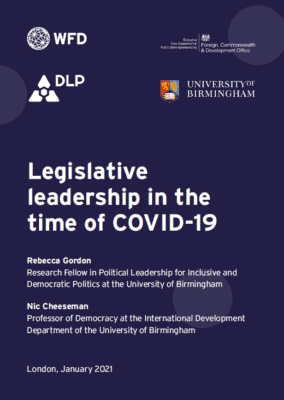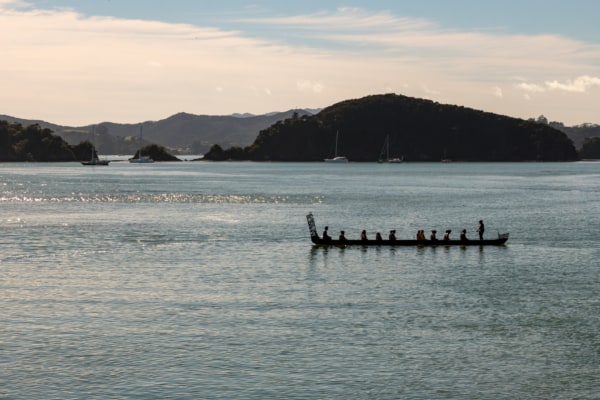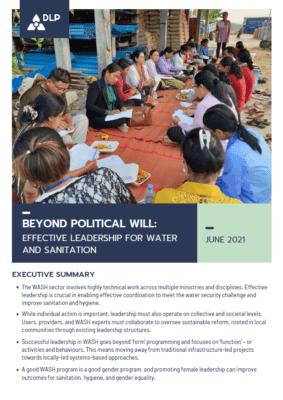Tait Brimacombe
Tait is in the final stages of completing her PhD, which explores the intersection of communication for development and gender in the Pacific, with fieldwork conducted in Vanuatu, Fiji and the Cook Islands. She has also contributed to research for AusAID (now DFAT) and the Australian Civil Military Centre on communication for development in fragile states, and the role of communication in complex emergencies. Her current research interests include women’s leadership, coalitions and collective action in the Pacific.
Niheer Dasandi
Niheer completed his PhD at University College London on the relationship between international and domestic inequalities and poverty. His current research focuses on the links between inequality and poverty, the politics of policy reform in developing countries, the political economy of aid, and political-bureaucratic interactions. Before starting his PhD, Niheer spent two years as a consultant for the United Nations Development Programme. Niheer is based at the University of Birmingham where he is Birmingham Fellow in Politics and Development, in the School of Government and Society.
Lisa Denney
Lisa is an independent researcher based in Melbourne. Her interests include security and justice, local governance and political economy analysis. Lisa is also a Research Associate with the Overseas Development Institute, where she manages the Sierra Leone country programme of the Secure Livelihoods Research Consortium and has worked with the g7+ Group of Fragile States since 2011. She also has experience of providing technical assistance and capacity support to governments and civil society organisations, as well as conducting political economy analysis training, program design and evaluation. Lisa holds a PhD in International Politics from Aberystwyth University. She is the author of Justice and Security Reform: Development Agencies and Informal Institutions in Sierra Leone (Routledge). Lisa has undertaken research in Bangladesh, Cambodia, Fiji, Ethiopia, Kenya, Malawi, Nigeria, Sierra Leone, Sri Lanka and Timor-Leste.
Glen Finau
Glen is an Assistant Lecturer in Accounting at the University of the South Pacific (USP). He previously worked with Ernst & Young (Fiji) Ltd as an auditor before joining USP and is a member of CPA Australia and the Fiji Institute of Accountants. He completed his Masters of Commerce at USP, with his thesis examining the factors that lead to successful ICT implementation in the public sector in Pacific Island Countries. His research focuses on a range of areas from Accounting, Information Systems, Mobile Money and Social Media. His work has been published in Pacific Asia Journal of the Association of Information Systems, Accounting History and Journal of Pacific Studies. His current research work explores the use and potential of social media in collective activism and political participation in the South Pacific. Glen is collaborating with DLP on ‘Digital Feminism in Fiji’, a research project exploring the use of digital technologies among feminists and women’s rights activists.
Jonathan Fisher
Jonathan is Reader in African Politics in the International Development Department at the University of Birmingham. He is also a Research Fellow in the Centre for Gender and Africa Studies at the University of the Free State and Academic Director of the Governance and Social Development Resource Centre. A political scientist by training, Jonathan’s research focuses on the intersection between authoritarian rule, political transformation and in/security in Africa and he is particularly interested in the politics of “post-liberation” states. His work has been funded by the Arts and Humanities Research Council (AHRC), British Academy, Economic and Social Research Council (ESRC), Facebook and the Newton Fund and he has worked in a range of African states including Djibouti, Eritrea, Ethiopia, Kenya, Malawi, Nigeria, Rwanda, South Africa and Uganda.
Romitesh Kant
Romitesh is a teaching assistant and a research Masters student with the School of Government, Development and International Affairs at USP. His Masters research focusses on democracy and constitutional processes in Fiji. His current research interests are politics of ethnicity and constitutional developments in Fiji, human rights, and digital media and politics in the Pacific. His work has been published in Pacific Studies and the Journal of Pacific Studies. More recently his research has focused on online activism and digital feminism. Romitesh is collaborating with DLP on ‘Digital Feminism in Fiji’, a research project exploring the use of digital technologies among feminists and women’s rights activists.
Linda Kelly
Linda is a co-director of the Institute for Human Security and Social Change. She has worked widely in the international development sector. She has held senior management positions at World Vision and Oxfam Australia and is an established trainer and facilitator. Her specialisations include community development and capacity building, monitoring and evaluation, gender, disability, and international NGO development. Since 2001 she has been Director of Praxis Consultants, a privately owned company specialising in strategic management, program design, and research and evaluation for international and domestic organisations. More recently she has begun working on monitoring and evaluation with indigenous organisations.
Mark Moran
Mark Moran PhD is a development specialist, author, and researcher. He is a Senior Industry Fellow with the Centre for Social Responsibility in Mining at The University of Queensland, and a Churchill Fellow with the Winston Churchill Memorial Trust. He has a unique technical and social science background with a degree in civil engineering and a PhD in human geography and planning. His research interests include borderland studies, aid effectiveness, appropriate technology, political economy of governance, public finance management and community-driven development. He has worked in a range of Indigenous and international development contexts, including Papua New Guinea, China, Timor Leste, Bolivia and Lesotho, and remote Indigenous communities in Australia. His academic publications include two popular books: Serious Whitefella Stuff – When Solutions Became the Problem in Indigenous Affairs, and Two Close to Ignore – Australia’s Borderland with PNG and Indonesia. His teaching is focused on online learning of frontline development, including Massive Online Open Courses (MOOCs) and Australia’s first MicroMasters of Leadership in Global Development. In 2019, he received a MOOC Award of Excellence by the UN SDG Academy.
Caryn Peiffer
Caryn holds a PhD in Political Science from Claremont Graduate University. Her dissertation examined the impact in Africa of externally-driven democratisation on developmental outcomes. She has written DLP papers on the politics of state-business relations, reform coalitions for growth, and on corruption. Caryn examined the determinants of bribe payments as part of the Global Experience of Corruption project (University of Strathclyde). She has carried out research for Transparency International, DFID, AFD, and SIDA, and has worked in India, Zambia and Botswana.
Suda Perera
Suda holds a PhD in International Conflict Analysis from the University of Kent. Her thesis examined the role of Rwandan refugees in the conflict dynamics of the eastern Congo. Suda’s current research focuses on the role of non-state actors in developmental leadership. For example, she is examining how armed groups in the eastern Democratic Republic of the Congo can be transformed into legitimate political actors who provide wider representation for marginalised citizens.
Sarah Phillips
Sarah Phillips is an Associate Professor in international security and development at The University of Sydney. Her research draws on in-depth fieldwork, and focuses on international intervention in the global south, knowledge production in conflict-affected states, state-building, and non-state governance, with a geographic focus on the Arabian Peninsula and Horn of Africa.
Sarah is the author of three books, the latest of which, When There Was No Aid: War and Peace in Somaliland (Cornell University Press, 2020) builds on research conducted previously for DLP, and was awarded the Australian Political Science Association (APSA) Crisp Prize for the best scholarly political science monograph (2018-20). She is also published widely in top-tiered academic journals, including International Studies Quarterly, the European Journal of International Relations, African Affairs, Foreign Affairs, and International Affairs. Her article in African Affairs (co-authored with Justin Hastings) won the Stephen Ellis Prize for the most innovative article in 2014-15.
Sarah has also been awarded a number of prestigious competitive grants, including three from the Australian Research Council (one examining state-formation and external finance in Somalia/Somaliland, another on the organisational dynamics of maritime pirate organisations and, most recently, a project that will explore perceptions of terrorist groups in conflict-affected states). Sarah holds a Sydney Outstanding Academic Research (SOAR) Fellowship, and is a Non-Resident Fellow at the Sana’a Center for Strategic Studies (Yemen and Lebanon).
Alina Rocha Menocal
Alina is a Senior Research Fellow in ODI’s Politics and Governance Programme, and a Senior Democracy Fellow at USAID. She is also a DLP Research Associate. Her research interests focus on bridging the gap between research and policy, particularly using political economy analysis to inform governance issues. She holds an M. Phil in Political Science (Comparative Politics) from Columbia University, and a BA in Political Science from Yale University.
Ceridwen Spark
Ceridwen is a Vice Chancellor’s Senior Research Fellow at Melbourne’s RMIT University in the Centre for Global Research in Global, Urban and Social Studies. Her research focuses on gender and social change in the Pacific, gender and education, gender and leadership, and gender and spatiality in urban areas. Since 2007, Ceridwen’s research has investigated the experiences of women leaders and educated urban women in Papua New Guinea. Among her current research projects is a DLP-funded comparative study of women’s activism through coalitions in PNG and Malaysia. Ceridwen holds a PhD in Indigenous and Gender Studies from Monash University.
Jope Tarai
Jope is a Teaching Assistant in Ethics and Governance, and a Masters student of Politics, Diplomacy and International Affairs at USP. His Masters research focuses on collective diplomacy in the context of The South Pacific Tuna Treaty. In addition, his research interests are: Pacific regionalism, tuna politics, social media and politics in Fiji. His work has been published in Pacific Studies and the Journal of Pacific Studies. More recently, his research has focused on the use of social media and digital technologies for activism and collective action. Jope is collaborating with DLP on ‘Digital Feminism in Fiji’, a research project exploring the use of digital technologies among feminists and women’s rights activists.
Jason Titifanue
Jason is a Teaching Assistant and Masters candidate at USP. He is currently undertaking research into how migration and remittances affect family livelihoods in small island communities. He is a member of a research team that examines the role that Information and Communications technologies (ICTs) play in contemporary Pacific politics and advocacy. He has co-authored papers examining the role that ICTs have played in activism, political campaigning and as a tool for empowerment. Two of these papers have been accepted for publication in Pacific Studies and the Journal of Pacific Studies. His current research interests focus on contemporary politics and how ICTs can be leveraged as tools for citizen empowerment, activism, and political engagement in the South Pacific. Jason is collaborating with DLP on ‘Digital Feminism in Fiji’, a research project exploring the use of digital technologies among feminists and women’s rights activists.
Grant Walton
Grant is a Research Fellow at the Development Policy Centre, Australian National University. Trained as a human/political geographer, Grant is interested in issues related to corruption, international development, education policy, and civil society. His current research focuses on Papua New Guinea and the Pacific Islands; he has also conducted research in Liberia and Afghanistan. Grant has published in a range of academic journals and books, and has produced reports for donors and NGOs and articles for the media. You can follow him on the Development Policy Centre’s blog. Grant is also the Deputy Director (International Development) for the Transnational Research Institute on Corruption and a University House (ANU) Early Career Academic Fellow.
Baia Warapa
Baia Oleam Warapa works for the Seventh Day Adventist Church in Daru, South Fly of Western Province in Papua New Guinea. His role in this capacity is administering a parish and carrying out research and surveys for the church. His past roles include working with International Non-Government Organisations, World Vision and Marie Stopes. With Marie Stopes, he managed a Family Planning program in South and Middle Fly Districts, introducing clinically safe Family Planning choices for mothers in the rural communities where birth and infant mortality rates are some of the highest in PNG. With World Vision, his engagement was in community development work, using the Healthy Islands motivation as a mindset change tool to intervene into communities. He carried out community mobilizations and baseline surveys before introducing Water Sanitation and Hygiene {WaSH} services to rural disadvantaged communities.
Jasmine Westendorf
Jasmine is a Lecturer in International Relations at La Trobe University. Her research focuses on conflict and peace studies, negotiated peace processes, international approaches to peacebuilding, the politics of international law and international organisations, and the role of women in peace and war. Her research includes work on Nepal, Timor-Leste, Cyprus, Liberia, South Sudan, Aceh, Cambodia and Bougainville. Jasmine has published her research in leading journals, including the Australian Journal of International Affairs, and she is the author of Why Peace Processes Fail: Negotiating Insecurity After Civil War (Lynne Rienner). She has conducted policy and research work for a range of NGOs, including the International Women’s Development Agency, World Vision and ActionAid. She is also a regular contributor to Australian and international media.









